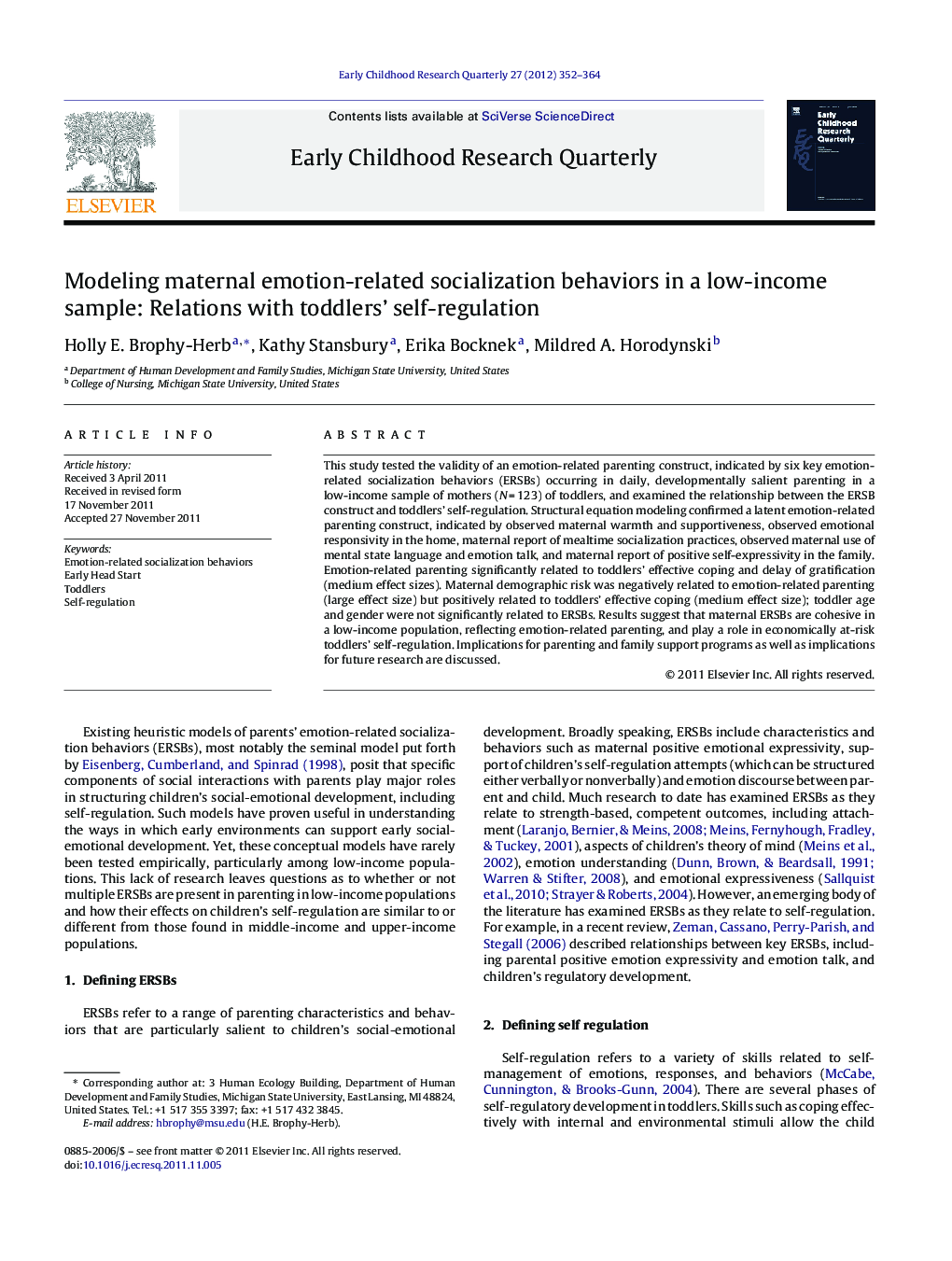| کد مقاله | کد نشریه | سال انتشار | مقاله انگلیسی | نسخه تمام متن |
|---|---|---|---|---|
| 353959 | 618956 | 2012 | 13 صفحه PDF | دانلود رایگان |

This study tested the validity of an emotion-related parenting construct, indicated by six key emotion-related socialization behaviors (ERSBs) occurring in daily, developmentally salient parenting in a low-income sample of mothers (N = 123) of toddlers, and examined the relationship between the ERSB construct and toddlers’ self-regulation. Structural equation modeling confirmed a latent emotion-related parenting construct, indicated by observed maternal warmth and supportiveness, observed emotional responsivity in the home, maternal report of mealtime socialization practices, observed maternal use of mental state language and emotion talk, and maternal report of positive self-expressivity in the family. Emotion-related parenting significantly related to toddlers’ effective coping and delay of gratification (medium effect sizes). Maternal demographic risk was negatively related to emotion-related parenting (large effect size) but positively related to toddlers’ effective coping (medium effect size); toddler age and gender were not significantly related to ERSBs. Results suggest that maternal ERSBs are cohesive in a low-income population, reflecting emotion-related parenting, and play a role in economically at-risk toddlers’ self-regulation. Implications for parenting and family support programs as well as implications for future research are discussed.
► Key emotion-related parenting behaviors (ERSBs) reflect a cohesive construct in low-income mothers’ emotion-related parenting.
► The inclusion of ERSBs as they occur in developmentally salient contexts for mothers and toddlers emphasize the ecological validity of the ERSB construct.
► An ERSB construct was more strongly related to economically at-risk toddlers’ self-regulation than were individual ERSBs.
Journal: Early Childhood Research Quarterly - Volume 27, Issue 3, 3rd Quarter 2012, Pages 352–364